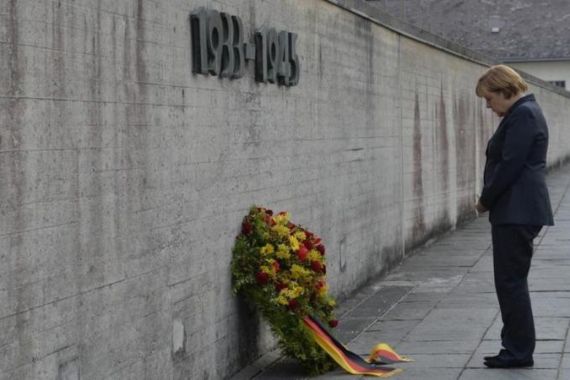German chancellor visits former Nazi camp
Historic visit to Dachau comes as Merkel steps up warnings about far-right threat while campaigning for third term.

German Chancellor Angela Merkel has visited the remains of the Nazi concentration camp at Dachau in southern Germany, where more than 43,000 people were killed by the Nazis from 1933 to 1945.
What happened at the concentration camps was and continues to be incomprehensible
Merkel’s visit on Tuesday was the first by a German chancellor to Dachau.
She was invited by a former inmate, 93-year-old Max Mannheimer, who was liberated from Dachau by American soldiers in 1945.
Speaking before the visit, she said she had been touched that Mannheimer, the head of the survivor group of Dachau, had invited her.
She said she was travelling there with feelings of shame and sadness, adding: “What happened at the concentration camps was and continues to be incomprehensible”.
On Saturday, Merkel said anti-Semitism and racism remain a threat to democracy in Europe.
Divided reaction
Reactions to the visit during campaigning for German general elections on September 22 were divided.
Some consider it a very good and positive signal, but some critics have considered it to be a campaign stunt and not a genuine commemoration.
“It certainly is staged for the election campaign to some extent, but not merely for that,” Weigl added.
Some residents of Dachau welcomed the chancellor’s visit on Tuesday.
“No chancellor has been here before and I think it’s good,” said pensioner Werner Mueller.
But Kai Werner, a technician in Dachau, said it was “nothing but pure campaigning”.
“I don’t think it is of great meaning to her or crucial for the campaign,” the 26-year-old said. “There are other topics which are far more urgent.”